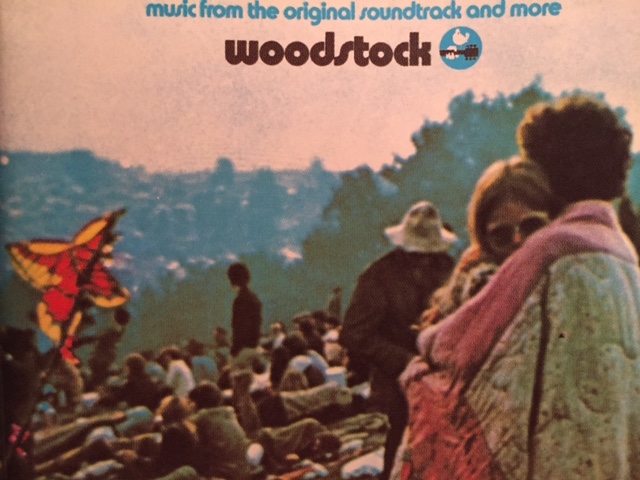Last night I attended a moving, melodious concert peppered with original poetry by Art Garfunkel accompanied by a two extraordinary musicians on acoustic guitar and piano/keyboard. Memories of days gone by flooded my mind as I listened to “The Sound of Silence,” and “Scarborough Fair,” among others, including some newer material and a Randy Newman cover.
The friend beside me was also reminiscing. When she mentioned attending Live Aid, I couldn’t help but reflect on my Woodstock experience. Yes, I was there—almost. I was one of four “freaks” who heard about the concert and drove up from Washington, D.C., on the second day. When we neared the venue and found the roads blocked off by police, we parked in the designated area and started the long walk to the concert. As we got closer, many of the residents along the country road set up TV tray tables at the end of their driveways, offering snacks and drinks as music from Woodstock filled the air from portable radios.
After walking for what seemed like a very long time, we came upon a large building—a resort, we were told. It was overrun with freaks and turned into an open-air drug market. Whatever your pleasure, it could be found here. This little detour proved to be our downfall. After taking our pleasure and resting a while, the news on the radio broadcast that the concert was being called off, as safety was a concern with the huge throngs of people in attendance. That did it. We turned around and walked back to our car in silence. When we turned on the ignition, and the radio, we were stunned to hear the music from Woodstock going strong. The authorities made the announcement, I suppose, to keep more people away. It worked. By this time, we were in no condition to make that walk again. We headed home listening to the radio as we drove.
My tendency to romanticize the drinking and drugging days needs to be countered by viewing the total picture honestly. The truth is that I put myself and others in danger by driving in an impaired condition. And I might have actually made it all the way into the festival if I hadn’t been drunk and high that day in August 1969.
It seems I’m inclined to forget the awful hangovers and how it seemed the workday would last forever as I often forced myself to perform my job wishing I could rest, closing my eyes at the red lights on the drive home, only to get home and begin partying again when I desperately needed sleep. Crazy!
When I begin reminiscing about the “good old days,” I need to think the drink and/or drug all the way through to the desperation that brought me to recovery. Selective memory is dangerous when you have a disease for which the primary symptom is denial.
I truly appreciate my sobriety today—and good music. I can attend a concert as I did last night, see and hear the entire performance, and even remember it the next day. Sobriety rocks!
